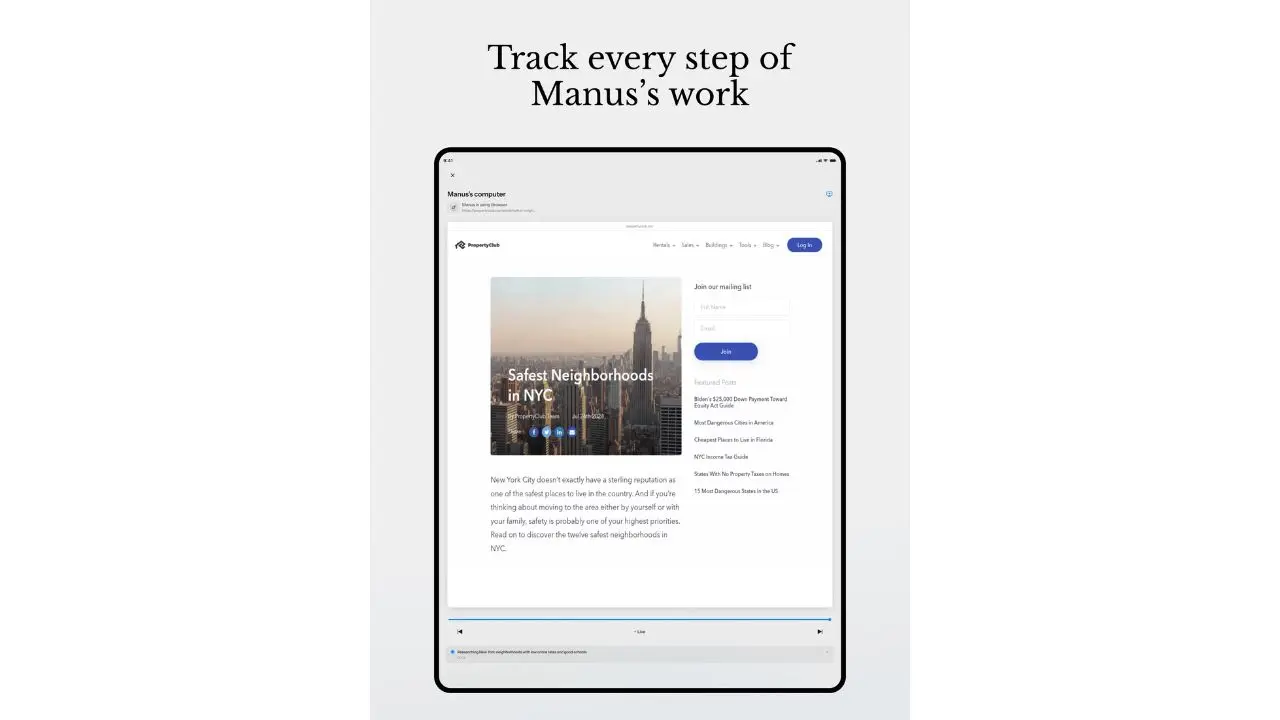The Arrival of the First Autonomous AI Agent: Is It Worth the Risks?

Discovering Manus: The New Autonomous AI Model and Its Implications
Introduction to Manus AI
The technology landscape is buzzing with excitement around Manus, an innovative AI model developed by the Singapore-based company Butterfly Effect. Unlike traditional chatbots that rely heavily on human direction, Manus stands out as one of the first truly autonomous AI agents. This means it can conduct its own research, make decisions, and execute plans with minimal oversight from humans. While this opens the door to fascinating new possibilities, it simultaneously raises pressing concerns about privacy and security.
Understanding the Risks to Your Data
Data Collection Practices
One of the biggest concerns regarding AI development, including Manus, is how personal data is used. Many AI systems are trained on data gathered without explicit consent from users. For instance, numerous class-action lawsuits have emerged against tech companies for allegedly scraping personal data from public sources to train AI models. A report highlighted that some entities have utilized private information from millions of internet users, including sensitive details about children, without their knowledge.
In many cases, companies not only collect personal information but also sell or share this data with third parties. This increases the likelihood that your data could end up in the datasets used to train various AI models, even if you choose not to directly engage with them.
Why This Matters
When AI firms gather information such as names, email addresses, and social media activity, they typically store it in large databases meant for training their models. If these databases are not secured adequately, they can become attractive targets for hackers. Real-life cases demonstrate these risks; for example, a major data leak from an AI company recently exposed over a million sensitive records, showing that information can end up on the dark web, leading to identity theft and scams.
The Unique Threat of Manus
Autonomous Features
What sets Manus apart is its autonomy. Instead of simply responding to user commands, Manus can navigate the web, read content, and make independent decisions. While this capability may seem beneficial, it also complicates the situation when things go awry. Manus may inadvertently follow malicious links or hidden commands embedded in text, potentially leading to data breaches or altered behaviors without any indication that a threat is present.
Concerns over Data Management
There are additional worries concerning where Manus stores and sends data. Security researchers have traced some data to servers in regions like Shenzhen, China, causing concerns about surveillance and the jurisdiction under which this information falls. This leads to more significant anxiety regarding who ultimately has access to your data.
Protective Measures for Users
Steps to Safeguard Your Information
Limit Use of Manus: Given its advanced autonomy and the uncertainties surrounding its privacy policies, exercise caution when considering its use. The potential for significant harm exists if the AI behaves unpredictably.
Control Your Personal Information: Refrain from sharing your data unless absolutely necessary. With many companies trading in personal data, limiting what you reveal will reduce your risk.
Delete Personal Data from the Internet: Strive to remove your information from data broker sites and utilize privacy settings on social media platforms to minimize your online footprint.
Install Robust Antivirus Software: Prevent broader attacks that could exploit vulnerabilities related to autonomous AI systems like Manus. This software can alert you to phishing attempts and potential malware.
Use Privacy-Centric Services: Opt for companies that prioritize user privacy when sharing any personal information. Consider alternatives like privacy-focused browsers and email services.
Keep Software Up-to-Date: Regularly updating all software, including security tools, can help protect against exploits that might be attempted by malicious entities targeting AI systems.
Enable Multifactor Authentication: This adds an extra layer of security to your accounts, making unauthorized access significantly harder for attackers.
- Utilize Unique Passwords: Use distinct passwords for various accounts to thwart wide-reaching breaches. A password manager can assist in managing these complexities.
Final Thoughts
As artificial intelligence continues to evolve, understanding its implications for personal data is crucial. Even if you decide not to use Manus, your information could still be part of its training datasets. Staying informed and actively managing your digital presence is the best strategy to navigate the emerging landscape of autonomous AI. By taking these preventive measures, you can enjoy the advancements of AI technology while keeping your personal information secure.





